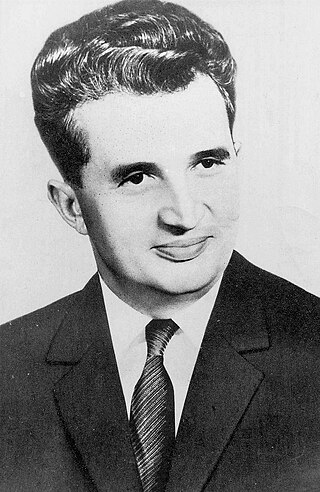
Nicolae Ceaușescu was a Romanian communist politician and statesman. He was the general secretary of the Romanian Communist Party from 1965 to 1989, and the second and last communist leader of Romania. He was also the country's head of state from 1967, serving as President of the State Council and from 1974 concurrently as President of the Republic, until his overthrow and execution in the Romanian Revolution in December 1989, part of a series of anti-Communist uprisings in Eastern Europe that year.
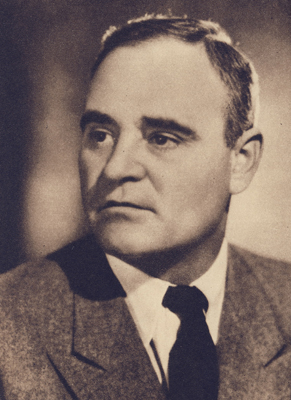
Gheorghe Gheorghiu-Dej was a Romanian communist politician and electrician. He was the first Communist leader of Romania from 1947 to 1965, serving as first secretary of the Romanian Communist Party from 1944 to 1954 and from 1955 to 1965, and as the first Communist Prime Minister of Romania from 1952 to 1955.
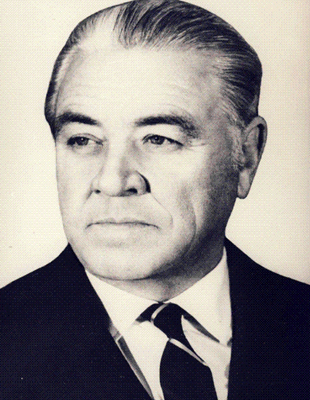
Ion Gheorghe Iosif Maurer was a Romanian communist politician and lawyer, and the 49th Prime Minister of Romania. He is the longest serving Prime Minister in the history of Romania.

Chivu Stoica was a leading Romanian Communist politician, who served as 48th Prime Minister of Romania.

Doftana was a Romanian prison, sometimes referred to as "the Romanian Bastille". Built in 1895 in connection with the nearby salt mines, from 1921 it began to be used to detain political prisoners, among them Gheorghe Gheorghiu-Dej, who was the Prime Minister of Romania (1952–1955), and the Chairman of the State Council of Romania (1961–1965), and Nicolae Ceaușescu, who was General Secretary of Romanian Communist Party (1965–1989), and the first President of Romania (1968–1989).

The Romanian Communist Party was a communist party in Romania. The successor to the pro-Bolshevik wing of the Socialist Party of Romania, it gave an ideological endorsement to a communist revolution that would replace the social system of the Kingdom of Romania. After being outlawed in 1924, the PCR remained a minor and illegal grouping for much of the interwar period and submitted to direct Comintern control. During the 1920s and the 1930s, most of its activists were imprisoned or took refuge in the Soviet Union, which led to the creation of competing factions that sometimes came into open conflict. That did not prevent the party from participating in the political life of the country through various front organizations, most notably the Peasant Workers' Bloc. During the mid-1930s, due to the purges against the Iron Guard, the party was on the road to achieving power, but the dictatorship of king Carol II crushed this. In 1934–1936, PCR reformed itself in the mainland of Romania properly, with foreign observers predicting a possible communist takeover in Romania. The party emerged as a powerful actor on the Romanian political scene in August 1944, when it became involved in the royal coup that toppled the pro-Nazi government of Ion Antonescu. With support from Soviet occupational forces, the PCR pressured King Michael I into abdicating, and it established the Romanian People's Republic in December 1947.

Gheorghe Apostol was a Romanian politician, deputy Prime Minister of Romania and a former leader of the Communist Party (PCR), noted for his rivalry with Nicolae Ceaușescu.

Emil Bodnăraș was a Romanian communist politician, an army officer, and a Soviet agent, who had considerable influence in the Romanian People's Republic.
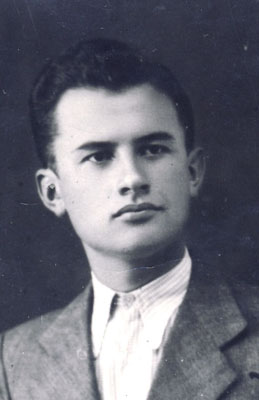
Ion Vincze was a Romanian communist politician and diplomat. An activist of the Romanian Communist Party (PCR), he was married to Constanța Crăciun, herself a prominent member of the party.
The 1965 Constitution of Romania was drafted by a committee of the Great National Assembly (MAN) and approved by a plenary session of the Central Committee of the Romanian Communist Party on June 28, 1965. It was then debated at the party's 9th Congress in July and adopted by the MAN, sitting as a Constituent Assembly, on August 21, being published in Monitorul Oficial that day. It was Romania's sixth constitution, and the third of the Communist era.
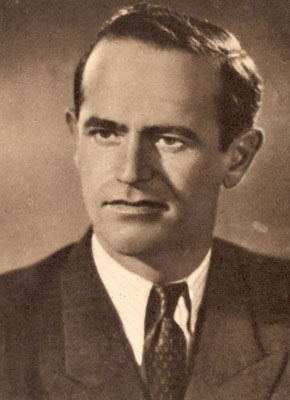
Alexandru Moghioroș was a Romanian communist activist and politician.

Paul Niculescu-Mizil was a Romanian communist politician. Joining the Romanian Communist Party due to his background and intellectual aspirations, he was prominent in the agitprop department during Gheorghe Gheorghiu-Dej's rule. Under Nicolae Ceaușescu, he went from handling foreign affairs in the late 1960s to holding ministerial posts in the 1970s to a marginal position in the 1980s. After the regime's collapse in 1989, he spent time in prison before emerging as a vocal defender of the system he had served.

Alexandru Drăghici was a Romanian communist activist and politician. He was Interior Minister in 1952 and from 1957 to 1965, and State Security Minister from 1952 to 1957. In these capacities, he exercised control over the Securitate secret police during a period of active repression against other Communist Party members, anti-communist resistance members and ordinary citizens.
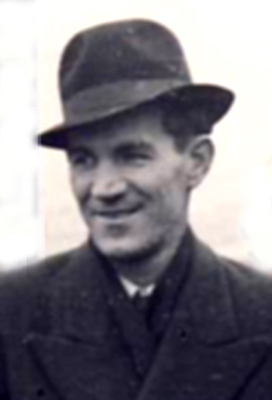
Constantin Doncea was a Romanian communist activist and politician. A railway worker, he played an important part in the Grivița Strike of 1933. Subsequently, imprisoned, he escaped and ended up in Moscow. He then joined the International Brigades during the Spanish Civil War. After spending much of World War II in the Soviet Union, he returned to Romania, where he helped establish a Communist regime. Doncea held a series of posts under the new order, but in 1958 he was removed from the party after clashing with its leader Gheorghe Gheorghiu-Dej. In his later years, he was rehabilitated by the latter's successor, Nicolae Ceaușescu.
An equivalent of presidential election was held in the Socialist Republic of Romania between 6-9 December 1967.
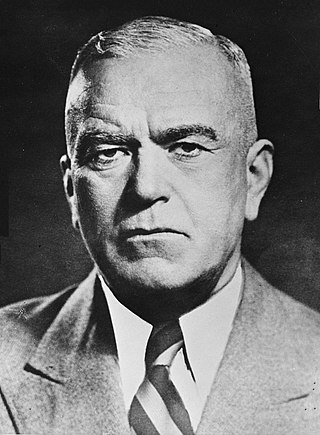
The fourth cabinet of Petru Groza was the government of Romania from 15 April 1948 to 2 June 1952.
Marțian Dan was a Romanian politician and university professor.
Events from the year 1961 in Romania. The year saw the creation of the title of President of the State Council for the de facto head of state. The first office holder was Gheorghe Gheorghiu-Dej, who was already General Secretary of the Romanian Communist Party.
This is a list of 1965 events that occurred in the Socialist Republic of Romania.

Dumitru Petrescu, believed to have been born Gheorghe M. Dumitru, also known as Gheorghe Petrescu and Petrescu-Grivița, was a Romanian general, trade union leader, and Communist Party (PCR) activist. After training as a metalworker in Grivița, he took to left-wing politics, joining the underground communist groups at some point before the railwaymen's strike of February 1933, which he helped organise together with Constantin Doncea and Gheorghe Vasilichi. Arrested by the Romanian Kingdom authorities in its wake, he received a 15-year prison sentence. He broke out of Craiova penitentiary a few months later, together with Vasilichi and Doncea, after overpowering a guard. With support from the International Red Aid, Petrescu made his way into Czechoslovakia, and then headed for the Soviet Union, where he lived until 1944. He worked in publishing and trained as a propagandist at the International Lenin School in Moscow.















